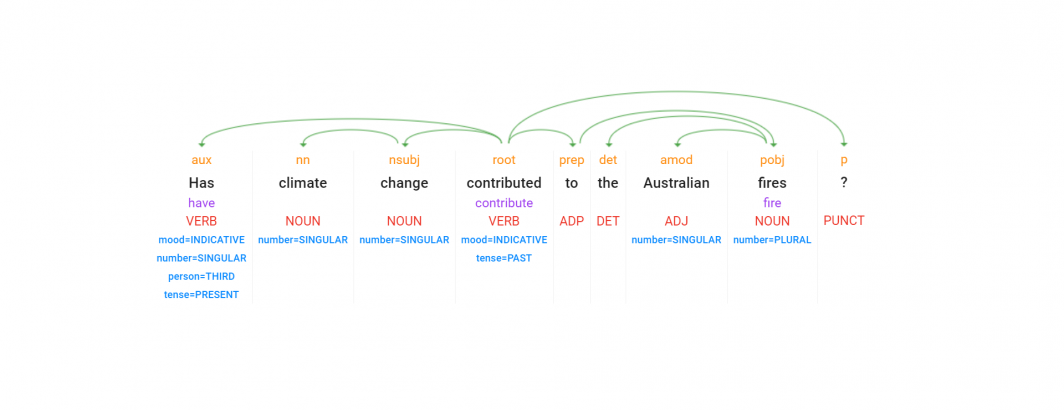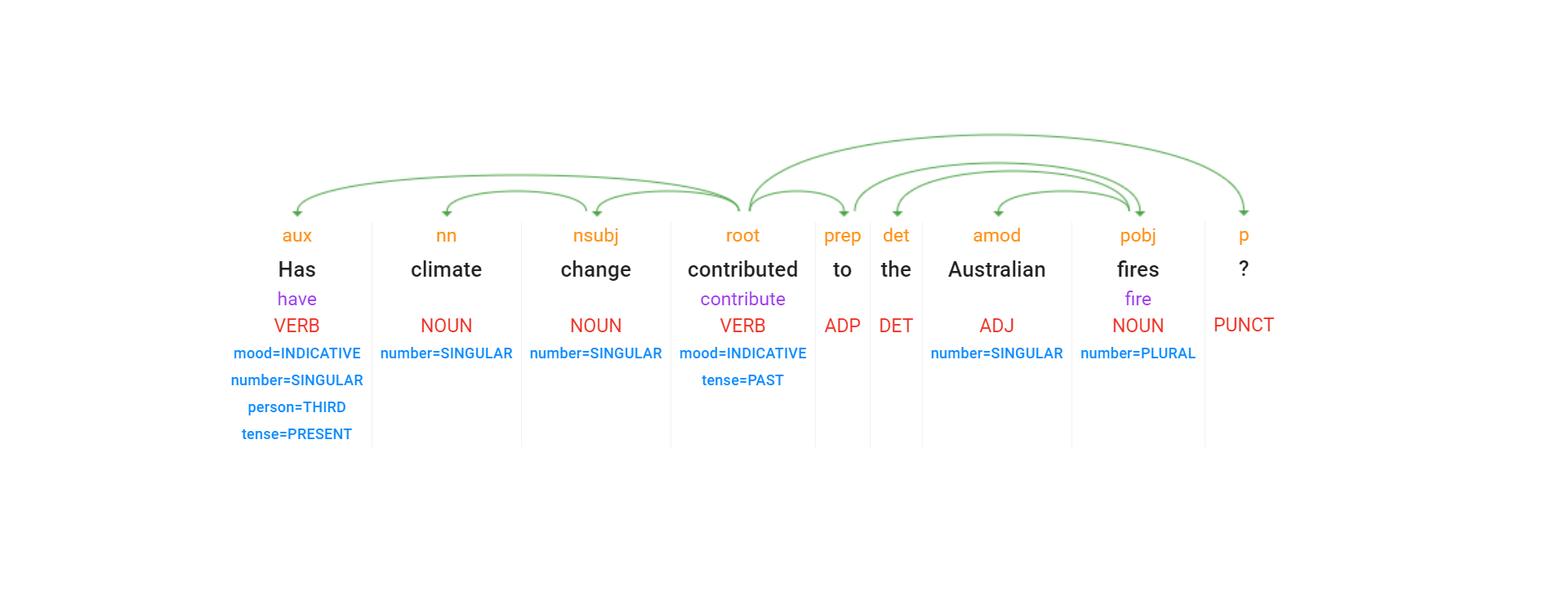
Moving beyond simple Q&A about climate change, could we use Google's Cloud Natural Language API and our new Climate Change Narratives Dataset to identify questions for which media coverage presents a contradictory answer? This could help the public understand questions for which they might receive different answers across the news landscape (and thus to think more critically about what they see) and would be an especially powerful tool for scientists, policymakers and the press to understand the areas of greatest media disagreement.
What if a user asks "Has climate change contributed to the Australian fires?" Running this through the Cloud Natural Language API yields:
Here the extracted entities are "climate change", "Australian" and "fires", while the central verb is "contributed" with lemma "contribute". Combining these together yields the final query:
select * from [CLIMATECHANGENARRATIVESDATASET] where Context like '%Australian%' and (Context like '%fires%' OR Context like '%fire%') and (LOWER(Context) like '%contribute%' OR LOWER(Context) like '%contributed%')
This returns 86 results. Clustering the results together by a simple word overlap metric, we can see that the news narrative yields at least three major themes.
The most common results draw a clear linkage, with statements like "Richard Betts, a professor with the Met Office and the University of Exeter, said human-induced climate change and local weather patterns had contributed to the hot, dry weather that played a key role in the severity of the Australian bushfires" and "… Hemisphere's summer have contributed in recent years to an increase in fires in Australia, a situation that scientists say is due, in part, to global warming caused by climate change. On Dec. 23, an Australian court approved the payment of an indemnity of more than $400 million for people whose…"
Another cluster contains opposing statements from government officials like "Scott Morrison has hit back at claims his climate change policies have contributed to the fire season, declaring it "doesn't bear up to credible scientific evidence"." and "Australia's conservative government has refused to be drawn on whether climate change could have contributed to the fires, in a response that has drawn criticism. Is this linked to climate change?" Given that government statements often carry unique weight in media coverage, this is an interesting finding.
Finally, a third theme might be classified as "its complicated": "So are bushfires getting worse? Many Australians are asking that very question and whether these fires are linked to climate change – but the science is complicated. Scientists have long warned that a hotter, drier climate will contribute to fires becoming more frequent…"
This suggests that post-clustering of search results could be used to identify core argument themes and potentially automatically identify conflicting narratives, helping us better understand the climatic narrative landscape.
